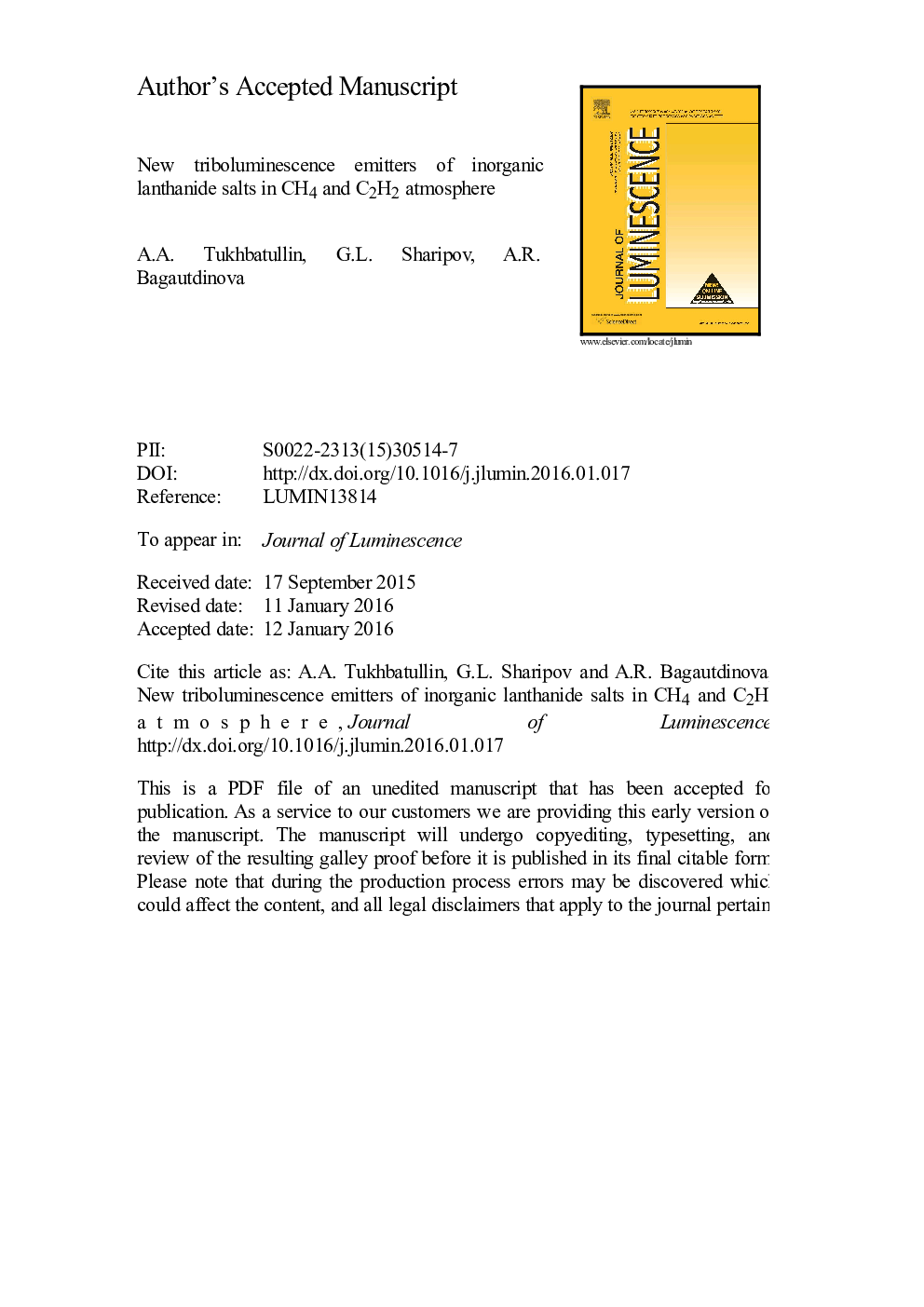| Article ID | Journal | Published Year | Pages | File Type |
|---|---|---|---|---|
| 5398515 | Journal of Luminescence | 2016 | 12 Pages |
Abstract
Excited radicals *CH and *C2 have been registered as light-emitting products of the mechanochemical decomposition of hydrocarbon gases (natural gas, CH4, and C2H2) occurring at decomposition of the hydrated cerium and terbium sulfates under atmosphere of these gases, followed by triboluminescence. The inlet of hydrocarbons almost does not affect the intensity of the solid-state components of triboluminescence, viz., the luminescence of the excited ions Ln3+. However, these gases completely suppress the luminescence of molecular nitrogen observed in air (a gas component of triboluminescence). The mechanism of decomposition of methane and acetylene by electrical discharges generated by the destruction of the crystals (the main source of gas component triboluminescence) have been discussed.
Keywords
Related Topics
Physical Sciences and Engineering
Chemistry
Physical and Theoretical Chemistry
Authors
A.A. Tukhbatullin, G.L. Sharipov, A.R. Bagautdinova,
